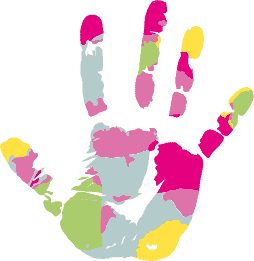Mindful skills to help kids self-regulate
A significant benefit of learning and teaching meditation to your family is that mindful skills help kids self-regulate, which in turn helps them manage strong emotions and stress.
If we don’t teach children how to navigate their way through their emotional state, they will react to situations and people uncontrollably. And as they grow older, this can result in an unease of expressing their feelings and/or manifesting feelings of guilt, shame, or resentment.
¿Mal comportamiento? ¿O comunicación?
As a foster mum, it is challenging when the behaviour appears to be ‘bad’. But with a mindful practice, I have learned that it is a source of communication. Children and young people will behave rather than articulate their feelings. Nuestro papel (como adultos conscientes) es "investigar" esto; mirar detrás del comportamiento.
Of course, this is difficult to do if you feel yourself pulled (or dragged!) into the drama of the moment. So, turning to a mindful breath, our tuning in to your own body can ayuda a restablecer sus crecientes niveles de estrés y es clave para "mantener el espacio".
Holding the space could also be referred to as coregulation, where our children are unable to regulate their emotions, but our presence, our energy, and our actions help them coregulate to our (hopefully!) calm state.
Es normal que todavía haya momentos en los que te sientas arrastrado al tornado del caos emocional. En lugar de sentirte abatido por tus fuertes reacciones, puedes presione el botón de "reinicio" de su meditación.
When we have a challenging moment in our household, I meditate on it. By this, I mean I sit with what I am feeling and thinking and turn towards it. I don’t analyse the whys and whats… I notice my breath, I see my body, I notice how I am feeling, and I hold this in my attention with complete acceptance that this is how I think.
You might think this is the opposite of what you should (or want to) do. Pero he estado practicando la meditación durante 30 años y sé que cuanto más lo evite, más surgirá en el futuro en forma de comentario resentido.
When we allow ourselves a moment to sit with a moment of suffering, there can be some valuable insights into our behaviour, which brings self-understanding and self-compassion. Esto nos ayuda a comunicarnos claramente con nuestras familias y (a veces) disculparnos por cómo reaccionamos.
Plus, if I want my family to own and process their feelings and thoughts more mindfully, then I need to model this to them.
My foster son found it surprising and slightly amusing when I declared “hold on, I’ve never had a 12-year-old in my home before… I’m doing my best!”
La comunicación honesta es clave.
Y esto significa ser honesto contigo mismo cuando reaccionas... ser dueño de tu respuesta y perdonarte a ti mismo.
Si haces esto, también podrás enseñárselo a tu familia. Ofrece una oportunidad para escuchar y "escuchar" atentamente. It promotes honest and clear communication with your family and kids; explaining that you care, worry, and love them. We often take for granted that our children know this. But saying it out loud can be a powerful affirmation that helps them feel noticed, acknowledged, and safe.
Owning our actions and reactions helps us to make a different choice next time. It teaches young people that we are all human, doing our best, and that even if they make mistakes (we all do), they are still loved.
Notar los factores desencadenantes con atención
Puede haber desencadenantes (tanto externa como internamente) que el joven no percibe cuando reacciona. No se dan cuenta de que estos factores desencadenantes del estrés están ahí o se están acumulando hasta que hay una explosión de emoción.
A veces los niños demuestran su enfado. Otros luchan y muestran comportamientos más pasivos (ignorando lo que dices en lugar de discutir) u ocultando sus acciones.
Al enseñar meditación a los jóvenes, Podemos ayudar a los jóvenes a sentir esos factores desencadenantes (respiración más rápida, latidos del corazón, sensación de calor, dolor de estómago, etc.) y darles algunas estrategias conscientes en estos momentos, es como si les hubiésemos dado un poder Ninja... pueden presionar su propio botón de reinicio personal y consciente.
Les enseña que they are not at the mercy of these moments of struggle and suffering and can choose a different response.
If they learn to do it for their wellbeing, they can equally share this practise with their peers.
Y así… es como construimos una comunidad mundial de paz.
¿Sigues buscando respuestas?
If you need help to learn more about mindful skills to help kids self-regulate:
Learn to teach meditation at home

Descubre el programa Niños Conectados…



